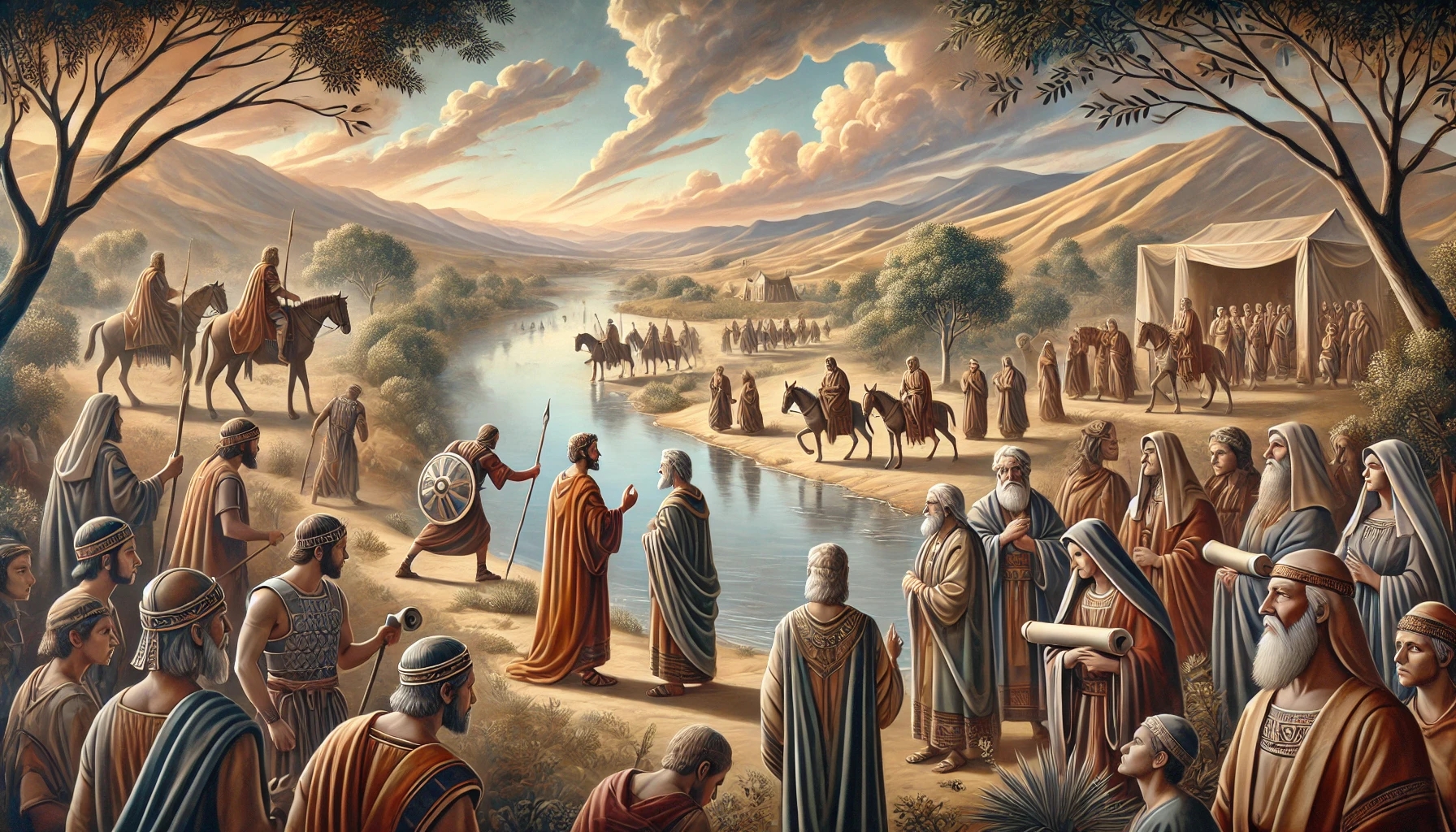
📅 25 November 2025
📚 BELIEVE HIS PROPHETS
📖 Daily Bible Reading
⚖️ Judges 12 – When Words Divide – and God Still Writes History
✨ Jephthah’s final conflict and the quiet judges who followed
🌐 Read online here
══════════════════════════
🔵 Introduction
Judges 12 leads us into a scene filled with tension, misunderstandings, and hurt pride.
The people of Israel—meant to be one united nation—fall once again into internal conflict.
The dispute between Ephraim and Jephthah escalates—and ends tragically.
Afterward, we read of three judges whose ministries are described only briefly, yet these short accounts hold important spiritual lessons.
This chapter is a mirror of human weakness—and of God’s faithfulness that continues nonetheless.
══════════════════════════
🟡 Commentary
The story begins with an unexpected confrontation:
The men of Ephraim march angrily northward. Their words are sharp, accusatory, and threatening:
“Why didn’t you call us? We will burn you and your house!”
It seems impulsive, thoughtless—perhaps an expression of wounded pride. Ephraim was a tribe that liked to see itself as a leading tribe.
Not being asked to join hurt their self-image.
Jephthah—himself a man with a painful past—answers openly:
He had called them.
No one came.
He had been abandoned when it mattered.
Between his words lie pain—but also honesty. He had fought because no one else would. God granted the victory.
Why the quarrel now?
But words alone cannot calm the situation.
The tension erupts.
The Gileadites defend themselves, and the Ephraimites provoke them.
Old contempt flares up again.
And escalation follows.
The narrative then presents one of the most striking scenes in the Bible: the “Shibboleth” test-word.
A simple word used to distinguish friend from enemy.
The Ephraimites could not pronounce the “sh” sound—and this small linguistic detail became a death sentence for thousands.
The number is shocking: 42,000 men died.
So much blood—among brothers.
After Jephthah’s death, the story seems to quiet down.
Three judges follow, their lives summarized in only a few verses:
-
Ibzan, with his large household and many children.
-
Elon, who judges for ten peaceful years.
-
Abdon, whose sons and grandsons ride on seventy donkeys—a sign of stability and prosperity.
Their stories are brief, almost silent—standing in contrast to Jephthah’s dramatic life.
Perhaps they show that God also works through unspectacular years.
That stability can be holier than spectacle.
And that God does not abandon His people, despite all their conflicts.
══════════════════════════
🟢 Summary
Judges 12 shows us:
-
a destructive conflict between the tribes of Ephraim and Gilead, fueled by pride and misunderstanding;
-
the tragic “Shibboleth” incident, where a single word determined life or death;
-
the conclusion of Jephthah’s judgeship;
-
three short judge biographies symbolizing peace and continuity.
It is a chapter full of human weakness—yet also a chapter where God continues His work despite it all.
══════════════════════════
📢 Message for Today
-
Pride can destroy relationships. Ephraim’s wounded honor cost tens of thousands of lives.
-
Unresolved conflicts escalate. What remains unhealed eventually breaks open.
-
Words have power—to build or to destroy. “Shibboleth” became a dividing line; today, our words can also include or exclude.
-
God works not only in dramatic times. The quiet judges show that peaceful years are also grace.
-
God keeps writing the story. Despite human failure, God continues to lead His people.
══════════════════════════
💬 Thought Prompt
Where have I created “Shibboleths” in my life—words, expectations, or standards that exclude rather than invite?
And how can I seek peace today, before a small spark becomes a great fire?
~~~~~ ⚖️ ~~~~~





















